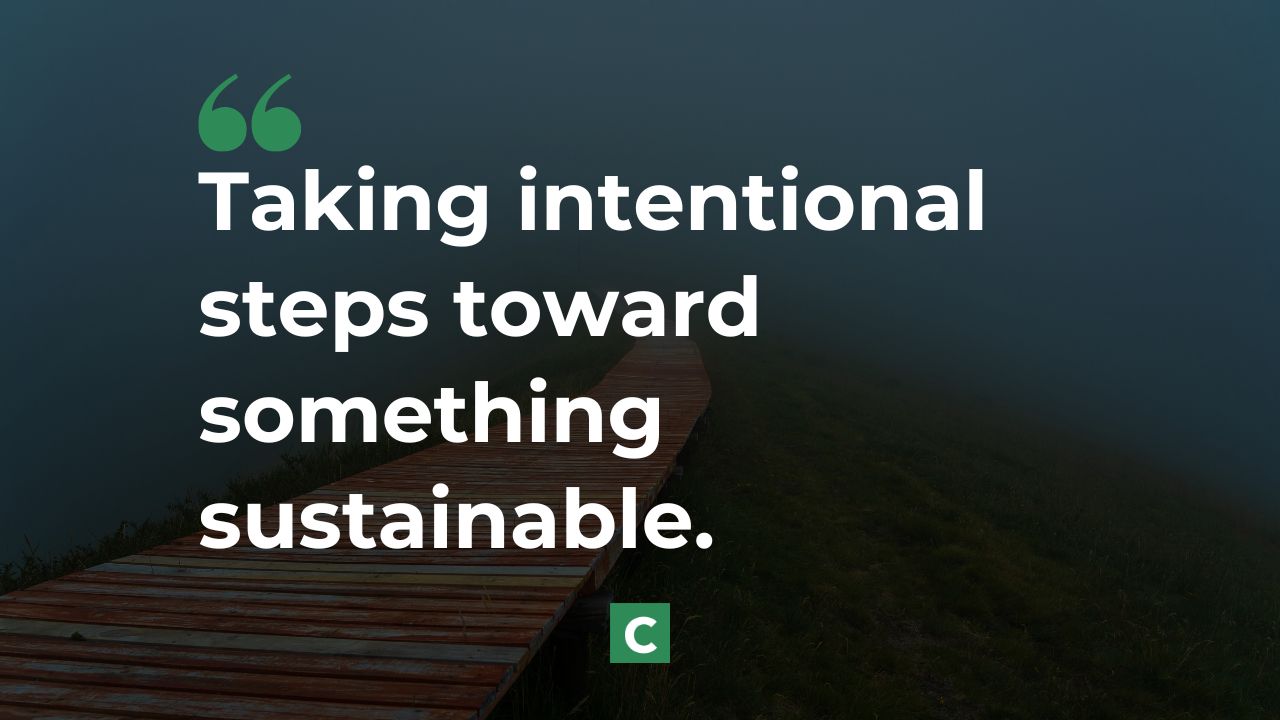Building an online business doesn't have to mean being chained to your laptop. I'm learning this the hard way right now, rebuilding from scratch with no revenue, no audience, just lessons learned from past mistakes and conversations with other entrepreneurs.
The right goals can completely change how you work. You'll build systems that actually run without you, spend less time on busy work, and make real progress toward the life you want.
The problem is that most of us chase goals that create more work, not less. We end up with business models that keep us working non-stop, seven days a week.
Why Most People Struggle to Set Goals That Work
Reason #1: We chase growth at any cost
Throwing money at strategies that need constant attention burns you out fast. I learned this with content creation, pouring resources into a model that wouldn't pay off for months.
Reason #2: We skip the systems
I used to waste hours manually researching podcast guests. Now AI helps me screen them in minutes. Simple systems make a huge difference.
Reason #3: We keep things vague
“I want more flexibility” sounds nice but doesn't help you take action tomorrow. Without specific targets, you stay stuck.
Reason #4: We try to do everything
Balancing multiple business goals while improving health, relationships, and everything else? It never works. Trust me, I've tried.
Here's how to set goals that actually give you your time back:
Step 1: Pick Goals That Create Freedom
Write down what you want to achieve. Then ask yourself: “Will this goal give me more time or create another job?” Be honest here.
Right now, I'm focused only on building authority on X. Not chasing five different platforms. Just mastering one thing that can bring consistent results without eating all my time.
The key is understanding platform dynamics, testing different content types, and building real connections with your audience.
When I started, I focused on basics like creating blog content, sharing tweets, and studying the platform. After a few weeks, I refined my approach. I dropped general platform research and focused on studying specific accounts, creating valuable threads, and engaging with others based on what my data showed was working.
Step 2: Create a Simple Schedule
Don't stress about blocking every minute. Focus on what matters most. For me, mornings are for focused work, and family dinner is protected time most nights.
I use basic tools like Notion for task management, keeping it simple with daily, weekly, and monthly filters. Google Calendar and Calendly handle my appointments without overcomplicating things.
The goal isn't perfection. It's finding a rhythm that lets you show up consistently without burning out.
Step 3: Take Small Steps Daily
Big goals get overwhelming fast. Start with what you know today and adjust as you learn.
When I started on X, I began with weekly blogs and simple tweets. I studied accounts that were crushing it, created templates I could test, and tracked what resonated. My process evolved from randomly posting to having a clear content strategy.
You don't need the perfect plan. Just start somewhere and refine as you go.
Step 4: Stop Doing Everything Yourself
Here's a simple way to free up your time:
- List your main tasks (like content creation or podcast interviews)
- Break down each task step by step – get granular here
- Mark what drains your energy or time – be honest about what you hate doing
- Record simple instructions using screen recordings or voice notes
- Start small with outsourcing one task at a time
For example, I automated my podcast workflow and saved about 2 hours weekly.
When a guest signs up, Zapier adds their info to Google Sheets. This triggers ChatGPT-4 API to analyze their bio and generate an episode title and description using my custom prompt.
Everything flows back to my spreadsheet automatically. Small automations like this add up to hours saved every week.
Step 5: Check Progress Monthly
Take one hour each month to review what's working. With X, I check every 3-4 weeks using a simple template:
- Content Performance: Which posts got real engagement?
- Time Spent: Where are my hours going?
- Systems Check: What processes are smooth vs. stuck?
Use ChatGPT to help analyze your content, but ask specific questions:
- Which tweet formats get the most engagement?
- What topics spark the most conversations?
- Where am I spending too much time for too little return?
- Which systems need refinement?
Track real indicators of progress: Are your systems running smoothly? Is content taking less time to create? Are you building genuine connections? Are you actually getting your life back?
Your Next Step Forward
I'm still figuring things out too. But, you don't need another overwhelming goal list. You need one small step that moves you toward freedom.
Pick something simple today. Maybe it's automating one task that eats your time. Or documenting one process you do repeatedly.
For me, it started with creating templates for social posts. Then automating guest outreach. Small changes compound into systems that give you back your time and energy.
The goal isn't to build a perfect business overnight. It's about taking intentional steps toward something sustainable. Something that works for your life, not against it.
Chris helps entrepreneurs build wealth while prioritizing their freedom. Through over a hundred conversations on the Financially Well Off podcast, he’s uncovering what truly works to create balance, income, and independence. He shares weekly strategies to help you build a life where you can live well and work less.




